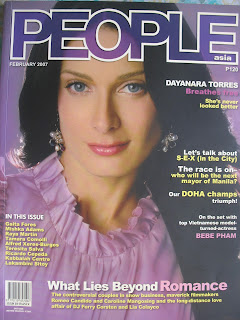***
Vera Alexander began the panel discussion by addressing the first pair, Githa Hariharan and Astrid Saalbach.
Key phrases for this first installment are: writer’s role, time and space, globalization, gender roles, Danish language, dansk, multilingualism, translation, theater, English, hegemony, Githa Hariharan, Astrid Saalbach.
Vera: Can you comment on your role as a writer? What is it like to be a writer? How does it feel to be a writer today -- has that changed in the course of your career?
Githa: In your day-to-day ... as a writer, you don't get a salary every month. And you're not a poet, you're not in a garrett, you're not this romantic figure. A novelist is a kind of middle-class figure, which is very boring indeed. I have a formula to describe my writing … It's called the well-constructed lie. Because we don't know ... And you're guessing as much is your readers are... but we have to construct it well.
So I came to my writing partly because I had a very traveling childhood. At the age of 13 I moved from Bombay to Manila, and there's nothing worse than being a 13-year-old in a classroom, and in those days we still had a very un-politically correct course called Oriental History, and the minute they began to speak of reincarnation and transmigration of souls, my 13 year old self would immediately look down and hope the teacher wouldn't call me to immediately explain this civilization that was such a burden on my poor little shoulders. But of course I was asked to explain, and so very early on I developed a deep and healthy skepticism about all forms of establishment, whether it was reincarnation or the nuns who ran the school...
More than anything you don't need to travel in India to find out that you live a multilingual existence, which is not of course all sweetness and light. There's a lot of tension, there is humor, but there's a lot of chaos, and I think that this is fertile ground for a writer. You know that language is something slippery, but it's something powerful and you better be very good friends with it. So I think this shifting ground is where a writer is made.
And finally, I think I really became a writer because I had a good job in publishing, and then I got pregnant. So when I went on maternity leave, I was surrounded by a whole lot of women who kept giving me contradictory advice, and then I had a baby who was wonderful, but terribly boring because you can't talk to a baby, so I wrote a novel.
Astrid: I'm still very confused when people ask what is a writer's role, because I still don't know after 30 years of writing. It's changing, I think it depends on how you look at yourself, and I look at myself as some sort of witness to a world that is disappearing, in my view. It is a way of understanding the world, and the difficulties of changing gender roles, and of belonging to the privileged part of the world, that I think is in its last days. And the guilt that I think we are born with, because we are so privileged, and we are living our very nice lives, because of so many people's not-so-privileged lives. And not being able to do anything about it. The skisma(schism) in everything.
Vera: Can we talk a little bit about the sense of place, and about the significance of the location in which you live and write, and write about, and the kind of feelings you have about places?
















